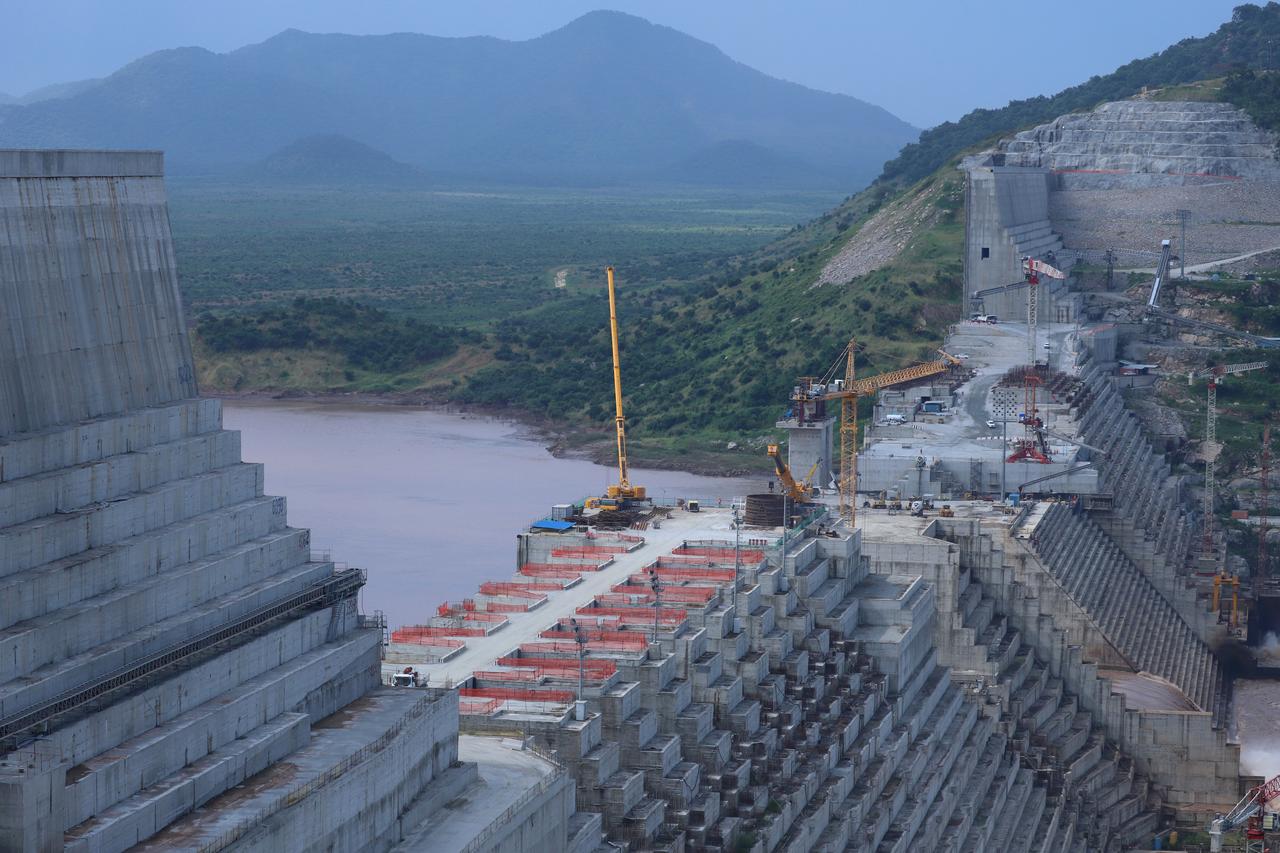
Egypt says differences over filling, operating Ethiopia’s Nile dam remain unsolved

Differences over main issues remain during the talks between Egypt, Sudan and Ethiopia over the rules of filling and operating the Grand Ethiopian Renaissance Dam (GERD) on the Nile River, Egyptian Ministry of Water Resources and Irrigation said Sunday.
The meetings, which are sponsored by the African Union and attended by the water ministers of the three countries, tackled the discussions of the technical and legal committees that were held on Friday, during which Egypt proposed alternative formulations to bridge the gaps over disputed points, the ministry said in a statement.
During Sunday’s meeting, the Sudanese and Ethiopian sides proposed some alternative formulations of the disputed technical and legal points, the statement said, stressing that differences on the main issues are still there.
The three sides agreed that technical and legal committees would continue talks Monday, adding that the ministerial meeting will be held later on.
Egypt, Sudan and Ethiopia have been engaged in talks which are meant to bridge the gaps between the three countries over the filling and operating the mega Nile dam.
The talks are also attended by experts from the United States and the European Union.
Over the past few years, tripartite talks on the rules of filling and operating Ethiopia’s grand hydropower dam have been fruitless, including those hosted by Washington, amid Egyptian concerns that the GERD would affect Egypt’s annual share of the Nile water.
Ethiopia has recently said that it would soon start filling the reservoir, while Egypt has repeatedly warned against any unilateral action without a prior tripartite agreement.
The 4-billion-dollar GERD is expected to produce over 6,000 megawatts of electricity and become Africa’s largest hydropower dam upon completion.
Filling the reservoir, whose total capacity is 74 billion cubic meters, may take several years. Egypt seeks to prolong the period of filling process to avoid the possible impacts of water shortage, which is a main point of their talks.






